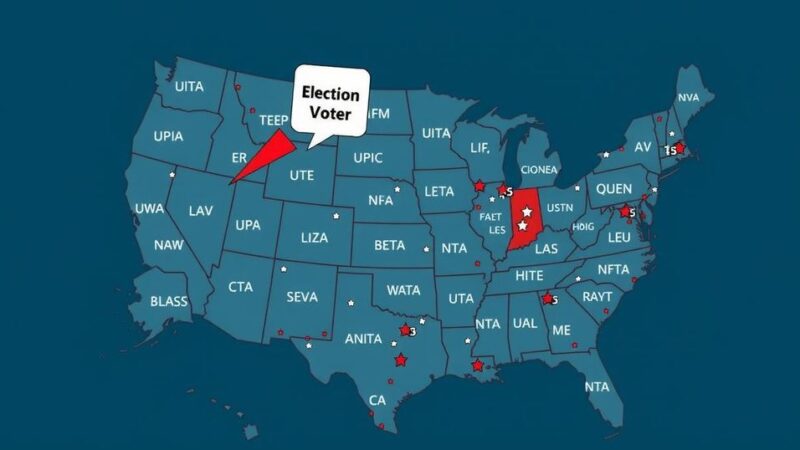Seven Polish nationals have been detained by Nigerian security forces for displaying Russian flags during protests against economic hardship. The protests emerged amidst widespread dissatisfaction over the cost of living crisis and alleged government failures. The incident highlights growing pro-Russian sentiments in parts of Africa and raises national security concerns according to Nigerian officials. The Polish Foreign Ministry is working with local authorities to clarify the situation surrounding the detainees.
In a significant development, seven Polish nationals have been detained by Nigerian authorities for displaying Russian flags during protests in Nigeria against severe economic hardship. The incident occurred on August 5, 2024, in Kano state, where protestors gathered to express their discontent with the rising cost of living and perceived governmental failures. The spokesperson for Nigeria’s secret service, Peter Afunanya, clarified that the Poles were apprehended due to their location during the protests and the foreign flags they displayed. However, he did not provide details on whether they were actively participating in the protests at the time of their arrest. Those detained include students and a lecturer, and the Polish foreign ministry is currently investigating the circumstances surrounding their detention. The protests in Nigeria have seen thousands of citizens, predominantly young people, voice their frustrations over the country’s economic turmoil, which has escalated to the worst crisis in decades. Notably, the display of Russian flags is a trend that has surfaced during these protests, symbolizing a growing pro-Russian sentiment in a region historically influenced by Western powers. This is particularly concerning for Nigerian authorities, with military chief Christopher Musa stating that such actions could be construed as treason under Nigerian law, which carries severe penalties. Recent reports indicate that the tailors who made the flags and individuals purportedly sponsoring these displays have also been arrested. The Nigerian secret service expressed a willingness to collaborate with Polish officials regarding the detained nationals, underlining that the detentions were not specifically aimed at Polish citizens. However, it is crucial to note that this trend of displaying foreign flags during domestic strife may carry significant political implications, reflecting a critical shift in sentiment amongst certain segments of the African populace.
The recent protests in Nigeria arise from a deepening economic crisis that has been described as the worst in a generation. Following decades of governance challenges and economic mismanagement, many Nigerians are taking to the streets to demand accountability and reforms. The protests have taken on a unique characteristic with attendees displaying Russian flags, which is atypical for Nigeria. This phenomenon points to a broader trend in parts of Africa where anti-Western and pro-Russian sentiments are reportedly on the rise, particularly in regions experiencing political upheaval. The involvement of foreign nationals in domestic protests, especially with symbolically charged flags, poses complex legal and diplomatic challenges.
In conclusion, the detention of the seven Polish nationals in Nigeria for their involvement in protests where Russian flags were displayed highlights the intricate interplay between foreign influence and domestic unrest in West Africa. The incident raises critical questions regarding national sovereignty, foreign intervention, and the evolving political landscape in Nigeria amid an economic crisis. As authorities navigate these tensions, the need for careful diplomatic engagement with Poland becomes paramount to ensure clarity and foster cooperation in addressing the underlying issues of the protests.
Original Source: apnews.com






